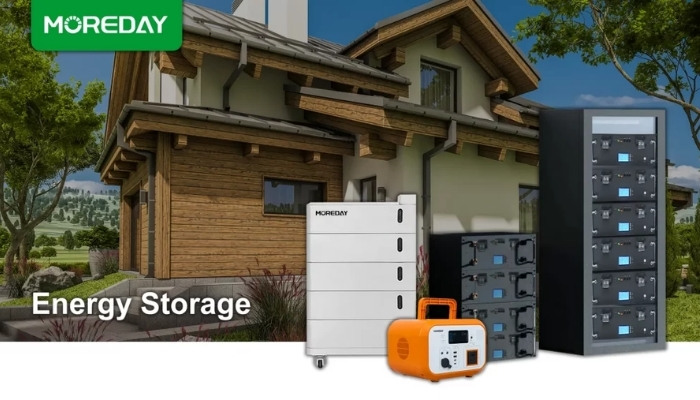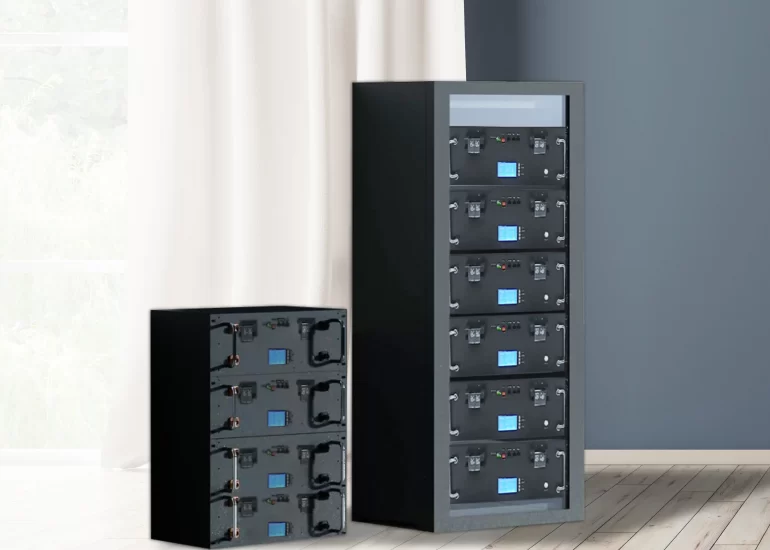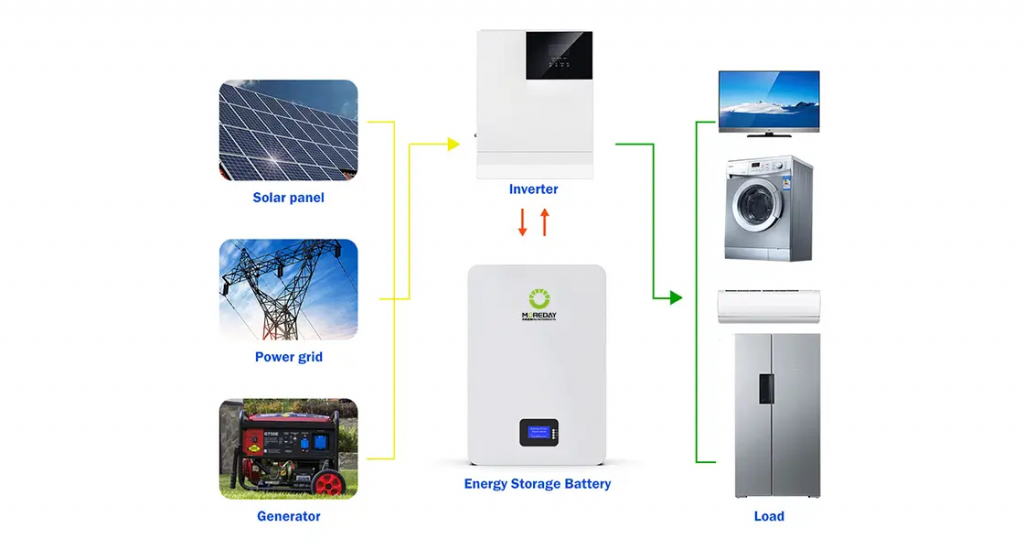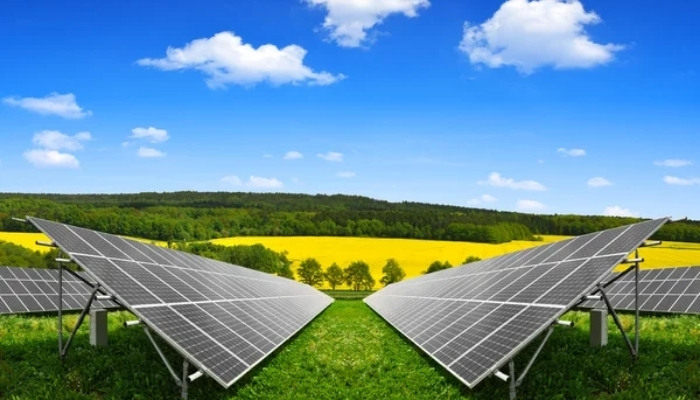Solar batteries store extra solar energy produced by solar panels to keep important appliances and devices functioning during a power outage or when the solar system isn’t producing energy.
Despite their many advantages, which include backup power, decreased utility dependency, and the ability to save more on electricity costs, solar batteries can be expensive. So, how much does solar energy storage exactly cost?
Table of Contents
ToggleWhy Buy Solar Energy Storage?

Any extra energy that a business doesn’t consume during the hottest parts of the day is captured and stored by the batteries. But that’s not all it does. It helps:
- Reduce costs for electricity: A solar PV system by itself won’t lower your energy costs as much as storing and using more of your own energy. Depending on your business’s energy consumption and battery capacity, you might be able to do away with your electricity cost entirely.
- Provide independence in terms of energy: Connected and off-grid systems become more self-sufficient when solar energy can be stored for later use.
- Provide independence in terms of energy: Connected and off-grid systems become more self-sufficient when solar energy can be stored for later use.
- Optimize time of use: Electricity rates are time-of-use based on the time of day. Large machinery typically costs more to operate during the day because it’s thought to be a time of greatest demand. Since solar batteries optimize energy use throughout the day, they can assist lower energy expenditures. When electricity rates are lower at night (off-peak), batteries can be charged using grid power if needed.
How Much is Solar Energy Storage Cost?

Commercial solar energy storage system costs range from $50,000 to even over $100,000 based on the size, capacity, and specific business needs.
The most widely employed battery energy storage technology in commercial systems for energy storage at the moment is lithium-ion batteries. Recent years have seen a steady drop in the price of lithium-ion batteries, opening up storage solutions to both individuals and corporations. A recent BloombergNEF research claims that since 2010, the price of lithium-ion batteries has decreased by 89%.
Usually, the price of energy storage is expressed in dollars per kWh of storage capacity. The same BloombergNEF analysis states that in 2021, lithium-ion batteries cost an average of $132 per kWh. Compared to 2020, when the price was $140/kWh, this represented a 6% decrease. Energy storage systems are now more reasonably priced and competitive with conventional power sources because of this notable cost reduction.
It’s important to keep in mind that prices can vary depending on the specific job. For example, economies of scale and reduced costs per kilowatt-hour may favor larger projects. Storage projects in remote or off-grid areas may cost more due to installation and transportation fees.
If you’re considering a commercial project that combines solar with energy storage, you may also need to consider investments in other infrastructure, such as electric vehicle charging stations. The construction costs of such facilities also vary by size and location, How much does a commercial EV charging station cost? may become a significant part of your budget.
What are the Factors that Affect The Cost of Solar Energy Storage?
The cost of solar energy storage systems depends on several independent factors:
1. Battery Type
Lithium-ion batteries are the best for most commercial use cases because they are efficient and have a longer lifespan. However, they are relatively more expensive. Lead-acid batteries are relatively cheaper but they are not very efficient and have a shorter lifespan. Flow batteries have found their way into large-scale usage. They are costlier but far more efficient due to their scalability.
2. Storage Capacity
Commercial systems generally range from 50 kWh to 500+ kWh, depending on the business’s energy needs.
3. Installation Capacity
More complicated installations, like custom integrations or advanced energy management systems, can raise labor and material costs.
4. Inverters and Additional Equipment
Additional equipment, such as smart meters or energy management systems, add to the overall price, especially the inverters, which convert DC to AC power.
5. Warranty and Maintenance
Longer warranties (10-15 years) are generally associated with higher initial costs, but they have reduced long-run repairs or replacements.
6. Incentives and Location
The total cost of a solar energy storage system may also be influenced by government incentives and regional dynamics, such as local labor costs and building codes.
How To Choose Solar Energy Storage?

Selecting a solar energy storage system is essential for maximizing power consumption and attaining energy reliability. However, with so many different setups and battery kinds available, choosing the best one could be difficult. Here are some tips to help you choose a solar energy storage system for your business:
1. Determine Your Energy Requirements
Consider the usual power use of your industry first. The capacity and size of the battery system will be determined in part by the hours of peak use and daily energy requirements.
A battery system’s energy capacity indicates how much energy it can hold. You also need to determine whether you need the system to satisfy energy demands during outages or peak hours or for complete backup power.
2. Capacity and Power Rating
The battery’s power rating describes how much power it can provide at any given time. If your business needs a lot of electricity in a short amount of time, you will need a battery storage system with a high power rating.
You should also verify the storage system’s capacity. Should your energy requirements be significant you will require a high-capacity battery.
3. Efficiency of Round-Trip Charging and Speed
If you work in a business where energy availability is limited, you will need a fast-charging battery. The round-trip efficiency of the storage system, or the percentage of energy that may be used after losses while charging and discharging, should also be evaluated. To reduce energy waste, you should ideally search for an energy storage system with a higher round-trip efficiency.
4. Safety
You cannot ignore the battery’s safety while evaluating its energy storage capacity and efficiency. You should think about purchasing systems with suggested safety features, such as temperature control, fire safety, short-circuit prevention, and overcharge protection.
MOREDAYDC’s Solar Energy Storage
At MOREDAYDC, we give priority to safety in everything regarding our solar energy storage solutions, providing strong, secure, and efficient systems that correspond to the demands of your enterprise.
Choose no less than proper safety— make a choice in favor of a solar energy storage system that protects not only your energetic activities but your business as well. Please reach out to MOREDAYDC today for comprehensive solutions that are secure and scalable!
Summary
Solar energy storage is an essential investment for businesses that want to maximize their solar power systems. Selecting the right system involves careful evaluation of energy needs, efficiency, scalability, and compatibility.
Partnering with a trusted provider like MOREDAYDC ensures access to reliable, scalable, and efficient energy storage solutions that allow your business to thrive in the renewable energy era.
Contact MOREDAYDC today for tailored solutions.
Related reading: All MC4 connectors the same?


